
No. You can’t just smash some coffee beans, steep them in hot water and expect to enjoy a good
On average, a single coffee bean weighs about 10 milligrams. However, this can vary depending on factors such as the species of the coffee plant, the growing conditions, and the processing method. For example, Arabica coffee beans tend to be larger and heavier than Robusta beans. Additionally, the roasting process can cause beans to lose.

How Much Does A Coffee Bean Weigh? Measuring Stuff
Coffee Converter. Use this coffee conversion tool to convert between different units of weight and volume. Please note that this type of conversion requires a substance density figure. A list of some common coffee density approximations is provided below. Please enter a density figure, select a unit to convert from and to, enter a conversion.

How Long Do Coffee Beans Last?
Measure Coffee Beans. Many factors go into making the perfect coffee, with the measurement of coffee beans being vital. Generally, an average of 90 - 150 beans would suffice for a 12 oz cup of coffee. This depends on the coffee type, the serving size, brew method, and grind level.
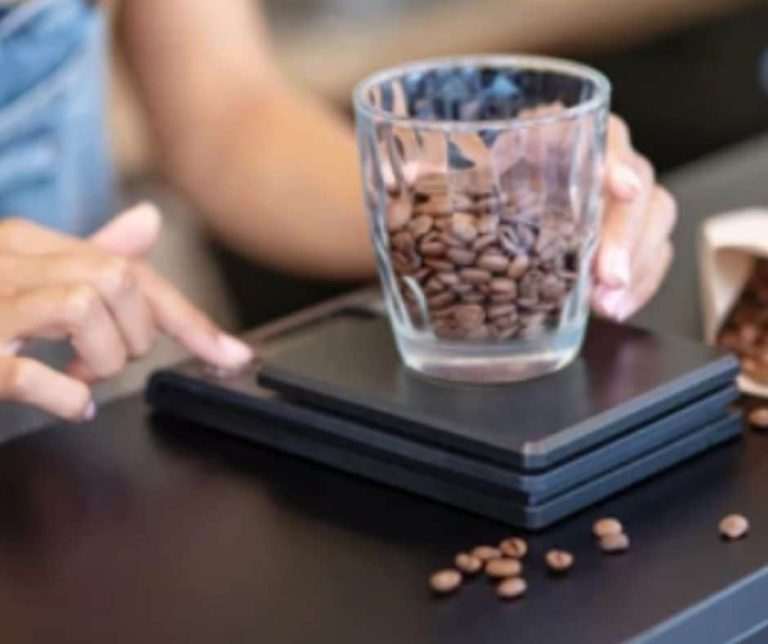
How Much Does a Coffee Bean Weigh
Using a brew ratio of 15, this is how it would look on paper: 1800ml ÷ 15 = 120. Therefore, we need 120 grams of coffee to make 6 cups of coffee (at 10oz per cup). Easy. Here's at table for those lazy skim readers among us. For a 10oz cup of coffee using a standard 1:15 brew ratio: 10OZ CUPS (300ML)
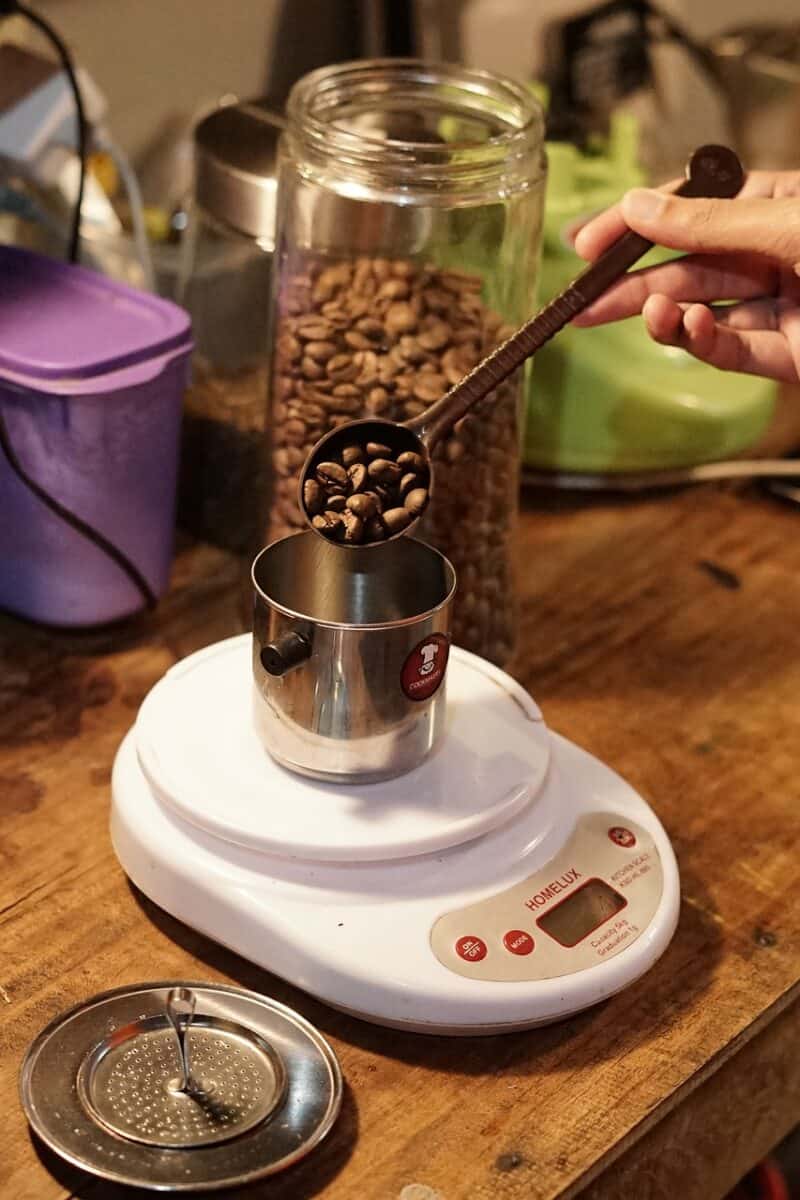
How Much Does a Coffee Bean Weigh? Fueled By Coffee
Measure the beans. Place a cup on the scale and rezero the scale so you will be measuring only the weight of the beans. Add a few coffee beans at a time until your scale reads 30 grams (1.1 oz). 30 grams (1.1 oz) will yield about 3 cups of coffee and will make for a universally accepted strength. Every 10 grams (0.35 oz) of coffee beans will yield roughly one cup of coffee, so this measurement.
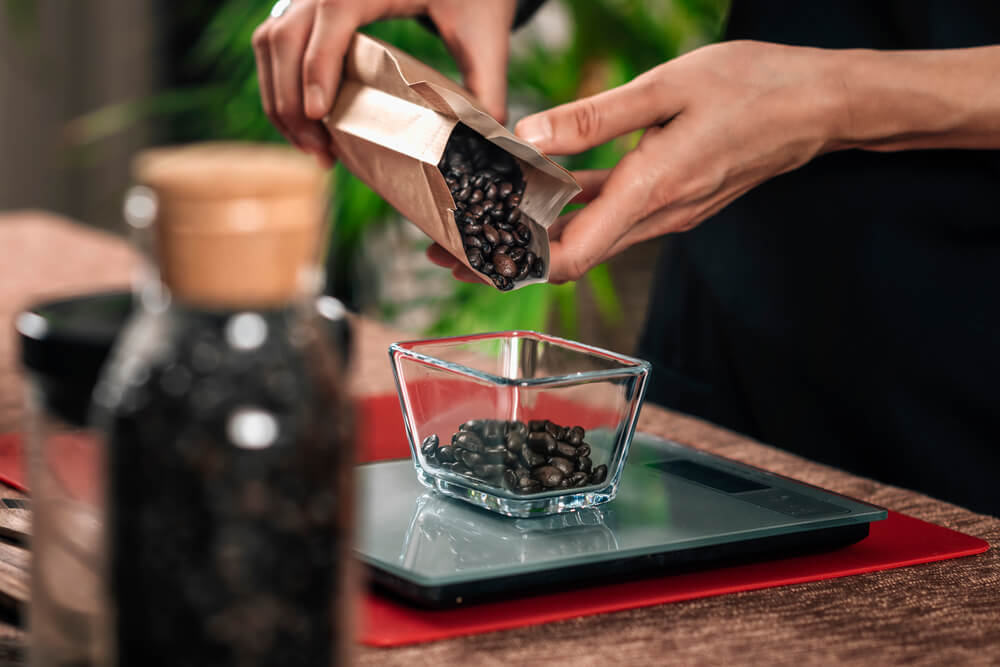
How Much Do Coffee Beans Weigh?
You can weigh coffee without a scale by counting beans or using a tablespoon to measure whole or ground beans. An average coffee bean weighs 0.136g. 1 tbsp of whole beans weighs 5.29g while 1 tbsp of ground coffee weighs 4.07g. Light, medium and dark roast coffee weigh different because they have varying moisture levels.

How Much Does a Coffee Bean Weigh Math Made Easy Caffeine Companion
A cup of coffee beans can vary in weight depending on the type of bean and how it is measured. Generally, a cup of coffee beans will weigh between 5 to 6 ounces, or 140 to 170 grams. To get a more precise measurement, a kitchen scale should be used to weigh coffee beans. Roasting and grinding can also alter the weight of coffee beans.
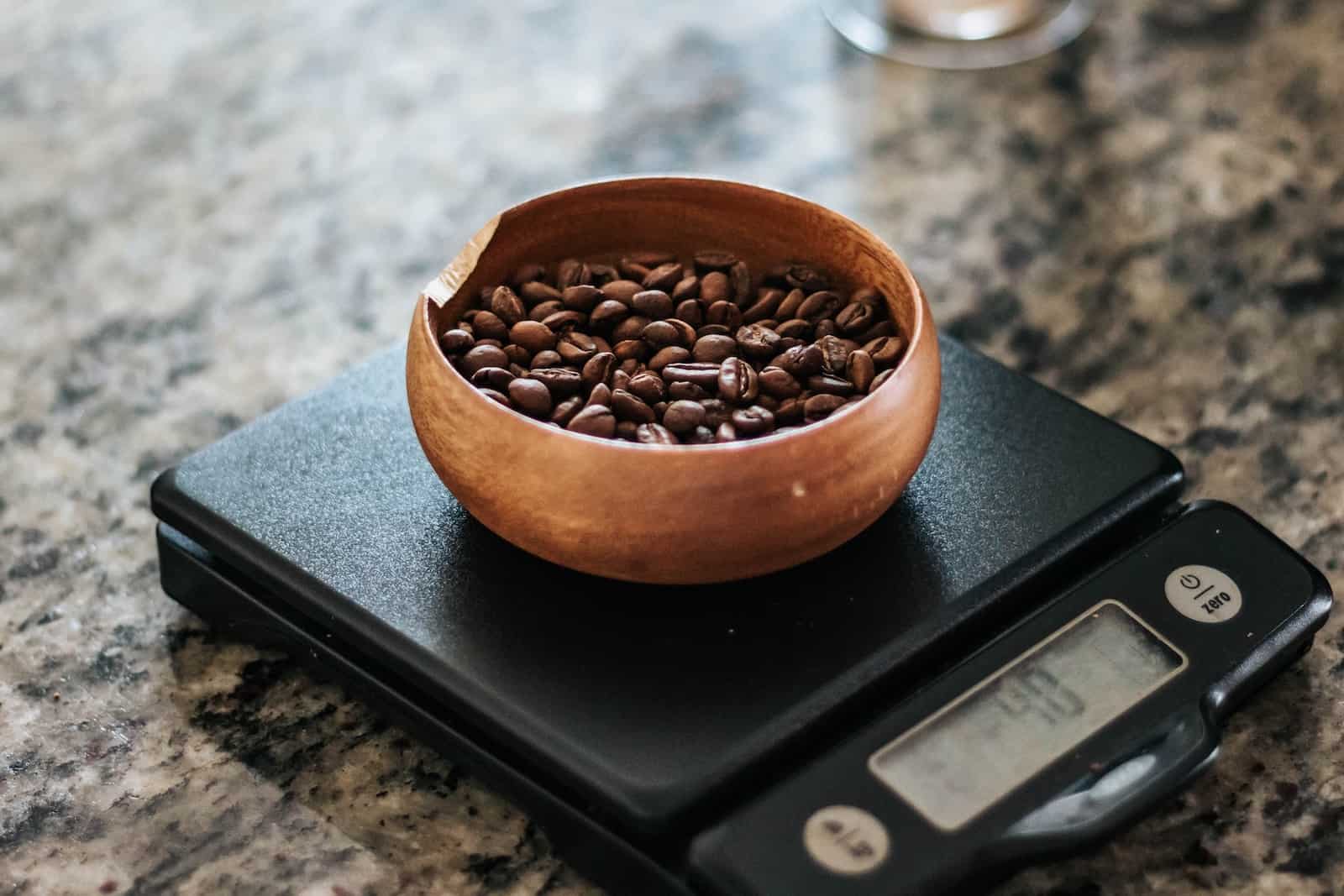
How to Make Pour Over Coffee Like a Barista [Brewing Guide]
Quick Answer: How Much Does A Coffee Bean Weigh. On average, a single coffee bean weighs around 10 milligrams, or 0.01 grams. However, the weight can vary depending on factors such as the type of coffee bean, the level of roast, and the processing methods used. It is important to note that this is just an average, and individual coffee beans.
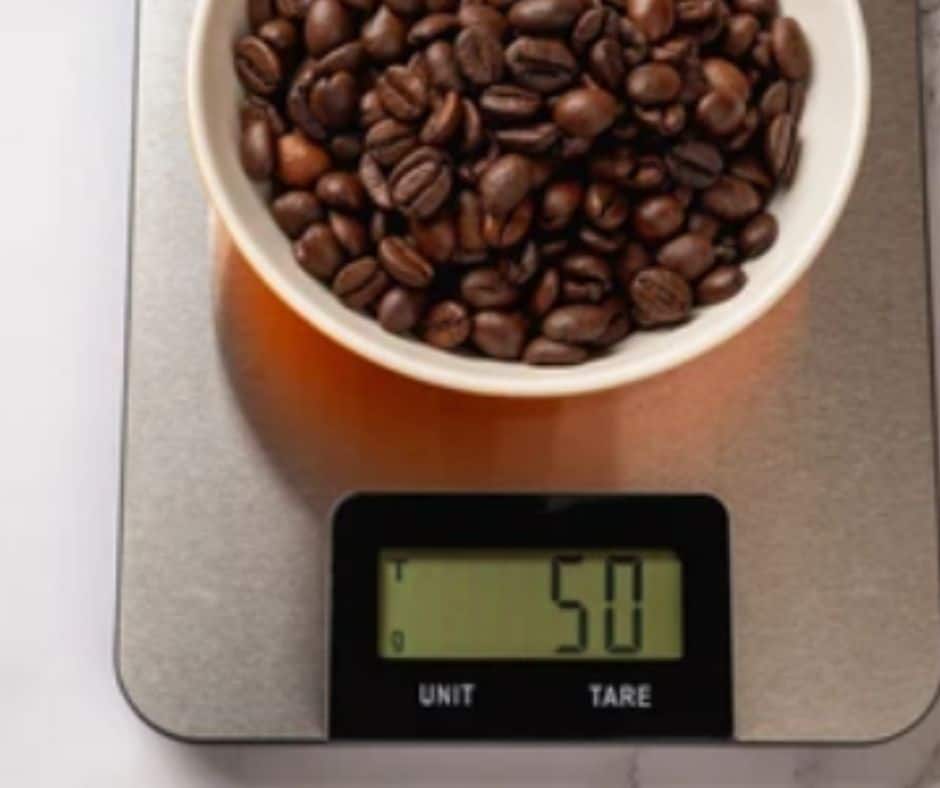
How Much Does a Coffee Bean Weigh
On average, a coffee bean weighs between .12 and .17 grams or 120 to 170 milligrams. This is just over 1/10 of a gram, so between 6 and 10 beans make up 1 gram. This also gives us an average coffee bean weight of about 145 milligrams or .145 grams per bean. Exactly how much a single coffee bean weighs will depend on a number of factors.
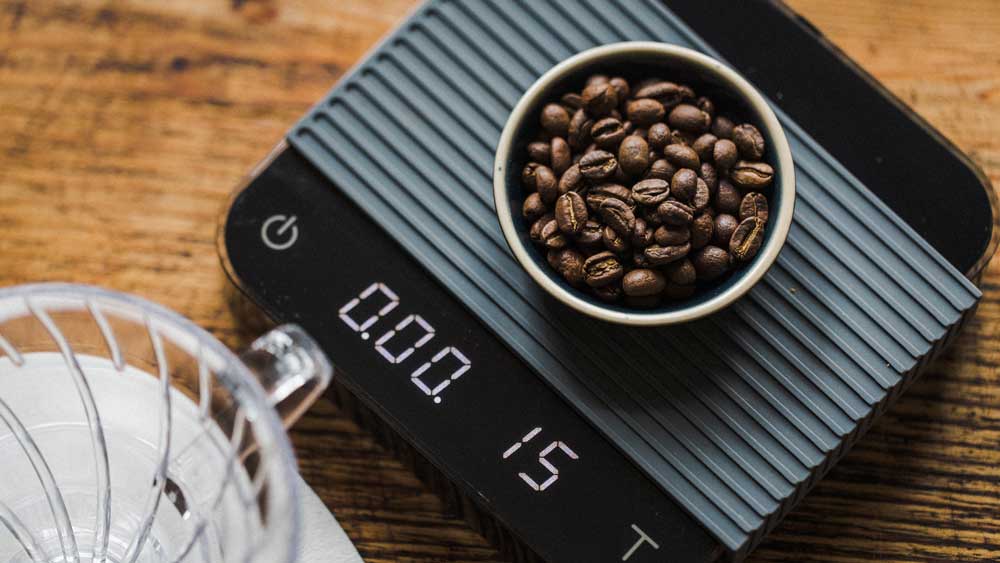
Why you should weigh your coffee Barista Tips Karvan Coffee
The average coffee bean weighs between 1/2 and 3/4 of an ounce, although some individual varieties can weigh less or more. Coffee beans come from different origins and are grown in different climates, which causes their weights to vary. For example, Brazilian beans are smaller than most other beans because they grow on the Atlantic coast, where.

Coffee Beans Vs Espresso Beans...Crucial Differences
How much coffee for 4 cups? For 4 cups, use 60 grams or 8 tablespoons of coffee. For milder coffee, use 48 grams or 6.5 tablespoons. How much coffee for 6 cups? For 6 cups, use 90 grams or 12 tablespoons of coffee. For milder coffee, use 72 grams or 9.5 tablespoons. How much coffee for 8 cups? For 8 cups, use 120 grams or 16 tablespoons of coffee.

How Much Coffee Beans Should You Use For One Tablespoon? A Guide To Measuring Out The Perfect
The more coffee there is in relation to water, the stronger the brew. The more water there is, the weaker the brew. The strength of coffee is often described in grams (g) of coffee to litres (L) or millilitres (ml) of water — but any unit of weight or volume can be used. An example of a coffee to water ratio would be 50g/1000ml or 1:20.
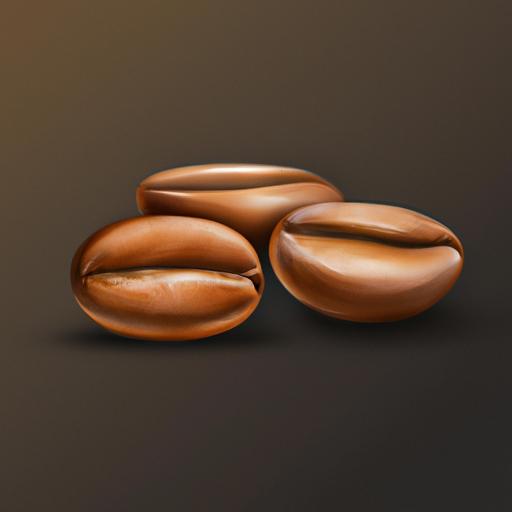
How Much Does a Cup of Coffee Beans Weigh? (The Answer Revealed) Coffee Pursuing
The average weight of a coffee bean can be anywhere from .170g for an un-roasted bean, to .12g for a dark roast bean. The main question may now be answered, but there is still much more to learn. Weight is only part of the equation of flavor. To get the most out of your coffee, the question requires a more in-depth answer.

How Much Does a Coffee Bean Weigh
For a shorter cheat sheet, keeps these weights and measurements handy: 1 cup = 8 oz = 227 grams. 1 tablespoon = 1/16 of a cup = 5 grams. 16 tablespoons = 1 cup = 8 oz. 1 scoop = 2 tablespoons = 10 grams. When you use a scale, calculating ratios and how much coffee and water you should use is rather easy.

How Much Does A Coffee Bean Weigh? Measuring Stuff
About Coffee, fresh beans. 561 kilograms [kg] of Coffee, fresh beans fit into 1 cubic meter. 35.02209 pounds [lbs] of Coffee, fresh beans fit into 1 cubic foot. Coffee, fresh beans weighs 0.561 gram per cubic centimeter or 561 kilogram per cubic meter, i.e. density of coffee, fresh beans is equal to 561 kg/m³.

How Much Does a Cup of Coffee Beans Weigh? (The Answer Revealed) Coffee Pursuing
1 - Grind your coffee to the desired grind for your brewing method. 2 - Place a flat bottom bowl (or your pour over or French press as an example) on the kitchen scale. 3- Zero out the scale to offset the weight of your bowl. 4 - Measure out the correct amount of coffee for your brewing needs. For example, if you're brewing a half pot.
